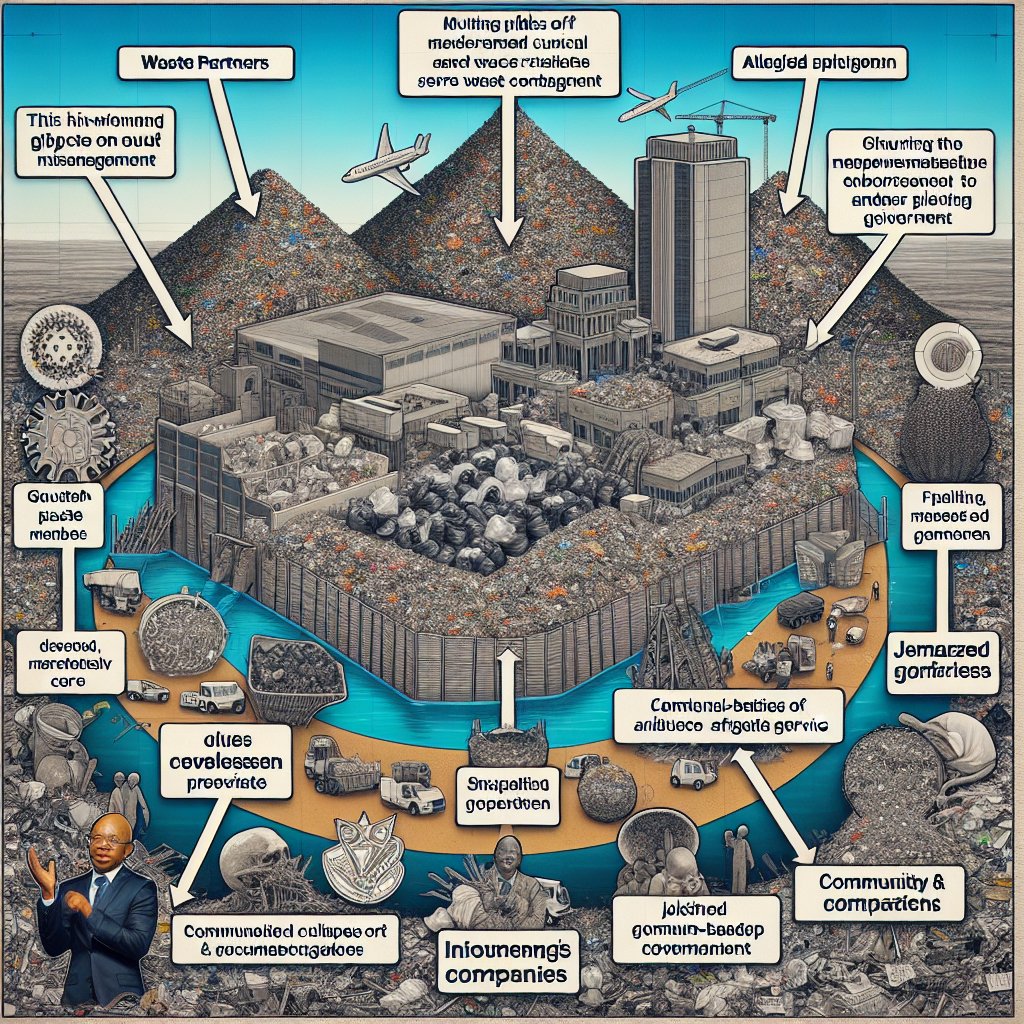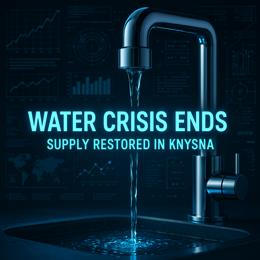Image created by AI
Ekurhuleni Waste Collection on the Brink Amidst Non-payment Crisis and Alleged Political Corruption
Ekurhuleni, a pivotal district in the economic hub of Gauteng province, South Africa, is currently experiencing a severe waste management crisis. Waste Partners, the region’s primary waste collection contractor, has reportedly been unable to pay its sub-contractors, casting a shadow of anxiety and despair among the local residents and community-based companies (CBCs) involved in the city's waste collection efforts.
According to reports, the financial turmoil within Waste Partners has culminated from a significant delay in payment from the Ekurhuleni municipality. This delay has led to a cessation of waste collection in several areas over the past few weeks. The situation raises serious health and environmental concerns and mirrors previous instances where refuse remained uncollected, affecting countless households and businesses.
The underlying issues, however, appear to run deeper than just financial mismanagement. Sources within Ekurhuleni have recounted instances of alleged political interference in the appointment of service providers, a situation which is said to benefit political interests over competency and expertise. The citizenry's concern lies not only with unsightly and unhygienic waste buildup but with the potential of losing faith in their leaders' ability to handle essential services ethically and efficiently.
On the contractors' side, Waste Partners, which is a self-proclaimed 100% black-owned enterprise formed in 2006, has been presented by the municipality as embodying the tenets of empowerment and quality service. The company's contract, valued at R18 million, encompasses waste management across numerous locales including Tembisa, Thokoza, Vosloorus, and Benoni, as well as two informal settlements in Tembisa and Germiston.
The implementation of the CBC policy, devised to ensure local empowerment and a share of 30% of contracts to community companies, has been deemed ineffective and non-beneficial by a despairing local CBC member, Johannes Rampaku. Rampaku highlights the deeply ingrained inadequacies and broken promises that have not only stifled economic opportunities for local businesses but have forced CBCs into financially untenable positions.
Ekurhuleni spokesperson Zweli Dlamini acknowledges the delays and misunderstandings regarding payment issues but maintains the existence of the CBC policy. However, testimony from the ground suggests a grim reality where CBCs are barely scraping by, earning minimal returns and facing unsustainable financial burdens.
This crisis has spotlighted the inherent struggles within South Africa’s approach to service delivery in critical infrastructure areas like waste management. The accountability of subcontracting processes, policies promising community empowerment, and the perils of enchaining small businesses to flawed systems are increasingly coming into question.
The unfolding scenario demands immediate action, not just through financial remedies to the current payment issues, but in addressing the structural and political impediments hampering effective service provision. The future prospects of waste management in Ekurhuleni will likely depend on a renewed commitment to transparency, ethical governance, and genuine empowerment of local stakeholders.










